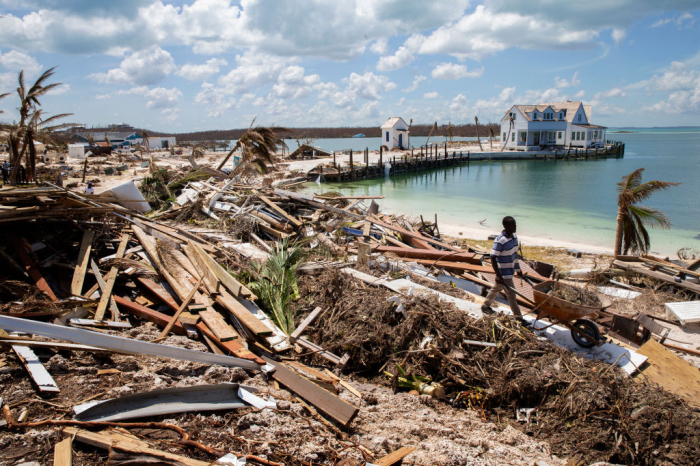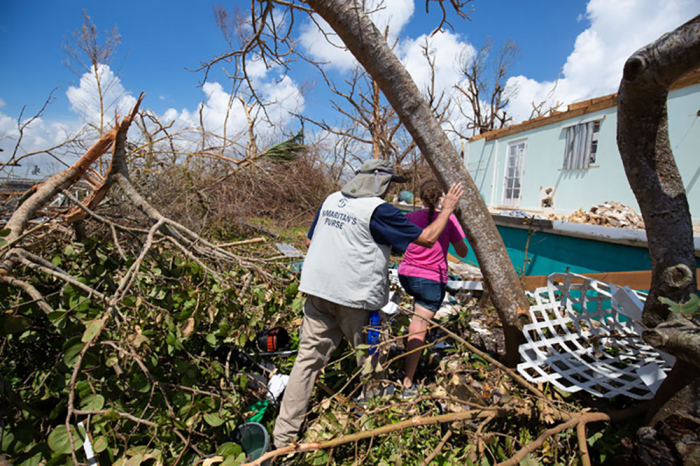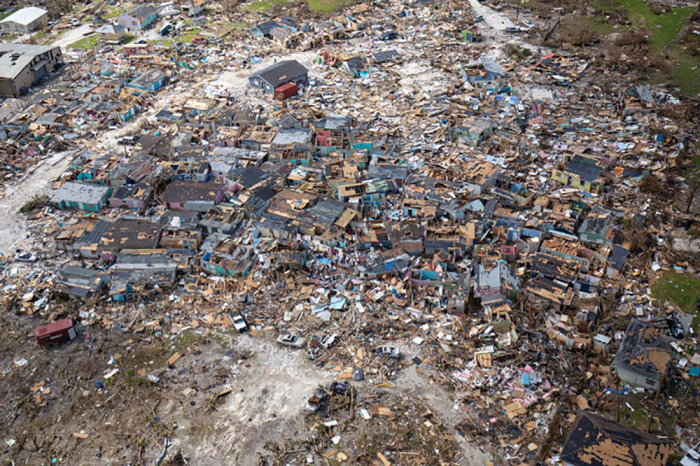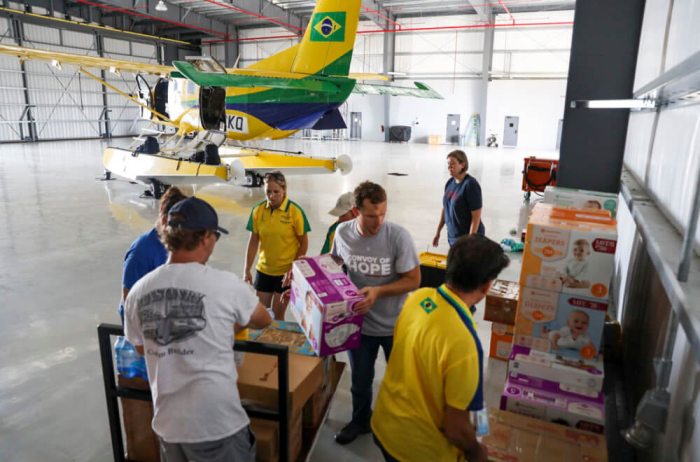Bahamas: Christian groups bring relief as Hurricane Dorian death toll rises

Over 70,000 people are now homeless and 44 have been found dead on the Grand Bahama and Abaco Islands, the parts of the Bahamas hardest hit by Hurricane Dorian.
Bahamas Prime Minister Hubert Minnis described destruction caused by the hurricane that hovered over the islands for nearly two days as “one of the greatest national crises in our country’s history.” Hundreds are still reported as missing.
With the death toll rising and survivors in desperate need of supplies and medical care, numerous organizations are coordinating relief efforts. Among the groups helping to distribute aid are the Christian organizations Convoy of Hope and Samaritan’s Purse.
Samaritan’s Purse, a nondenominational, evangelical Christian disaster relief organization, says its team of more than 60 staff members have been on the ground in the Bahamas since Sept. 4. At the request of the World Health Organization and the government of the Bahamas, they set up an emergency field hospital and flew in a team of medical specialists, including doctors and nurses.
The 40-bed facility has “an outpatient department and emergency room, equipped to serve up to 100 patients a day,” Samaritan’s Purse said. The field hospital is also equipped with an obstetrics ward with a delivery room, and an operating room where as many as 10 surgeries can be performed each day.
Bev Kauffeldt of Samaritan's Purse gave a disaster relief update on the organization’s website and described seeing reports that the Rand Memorial Hospital in Freeport had been severely damaged by floodwaters, highlighting the need for the field hospital. Their DC-8 aircraft, which has already transported over 12 disaster response teams and more than 30 tons of emergency relief items, will continue to transport aid for as long as it's needed, she said.

Along with setting up a field hospital and medical equipment, Samaritan’s Purse has also provided emergency shelter materials, household water filters, and two community filtration units that turn saltwater into drinking water.
More than half of all homes on the Abaco Islands and Grand Bahama have either been destroyed or sustained extensive damage.
“The level of damage is so intense that it’s almost difficult to conceptualize what force or convergence of forces could have led to the shattering, the splintering of buildings of stone, of concrete and wood,” Duane Sands, minister of health in the Bahamas, said Sunday in an interview with The Wall Street Journal.

Sands said 600 humanitarian aid flights are going into Abaco each day. But although supplies are coming in, there are only a few vehicles on the islands that didn’t sustain damage from being submerged in water that can be used to transport supplies. On Grand Bahama, for example, there is only one working ambulance, he told WSJ.
Because of this, Samaritan’s Purse says it’s also using a small plane and helicopter to access hard-to-reach areas and transport team members and supplies.
“Families in the Bahamas are suffering and millions of others are bracing for Dorian’s impact as the storm continues to move,” said Franklin Graham, president of Samaritan’s Purse.
Convoy of Hope, a faith-based, international, humanitarian-relief organization based in Springfield, Missouri, says its teams delivered 3,000 pounds of relief supplies to Freeport and Treasure Cay on Friday. The seven plane loads of supplies included "water, tarps, ready-to-eat food items, Crisis Care Kits, diapers, wipes, formula, and two generators." They also provided 1,500 meals to evacuees from Abaco who are temporarily staying at shelters in Nassau.
On Saturday, Convoy of Hope delivered more relief supplies, including water filtration units and temporary shelters, along with more food and hygiene items. Hundreds of families in Freeport lined up to receive the products, Convoy of Hope reporter Jess Heugel said.

The Category 5 hurricane hovered over the Bahamas for nearly two days, with winds of 185 miles per hours and gusts up to 225 miles per hour. Dorian was downgraded to a Category 3 storm last Wednesday as it approached the Carolinas and was again downgraded to a Category 1 when it struck North Carolina's Outer Banks Friday with winds of 90 miles per hour. As the storm moved north to Canada, it was upgraded to a Category 2.
Dorian is now categorized as a post-tropical system as it moves through the Gulf of St. Lawrence after heavy rainfall and strong winds caused damage in Nova Scotia, New Brunswick and Prince Edward Island.
In North Carolina, the biggest impacts were on Ocracoke Island and Hatteras. When Dorian made landfall, 400,000 residents lost power. By mid-day Saturday, around 57,000 were still without power, Gov. Roy Cooper’s office said.
By Sunday, the governor’s office said only 8,400 homes and businesses were still without power and 200 people were still in shelters.
Search and rescue teams were on Ocracoke Island Saturday going door-to-door to check on residents. Emergency officials also transported fuel trucks, generators, and food and water. Cooper also visited the island and Morehead City to view the storm damage.
Convoy of Hope is also in North Carolina where its disasters services team is distributing supplies.
In an evacuation coordinated by the Bahamas Paradise Cruise Line, evacuees arrived at the Port of Palm Beach, Florida, aboard a cruise ship on Saturday.
The Grand Celebration cruise ship “arrived at the Port of West Palm Beach with 1,435 passengers from the devastated Abaco and Grand Bahama Islands,” U.S. Customs and Border Protection said in a statement on Saturday. The passengers consisted of 539 U.S. citizens and lawful permanent residents, 857 Bahamians, and 39 other nationalities.
The evacuation was coordinated with U.S. and Bahamian government officials and U.S. Customs and Border Protection, the agency said.
The U.S. Coast Guard also reports that it has rescued 308 people in the Bahamas since its Hurricane Dorian response began.





























